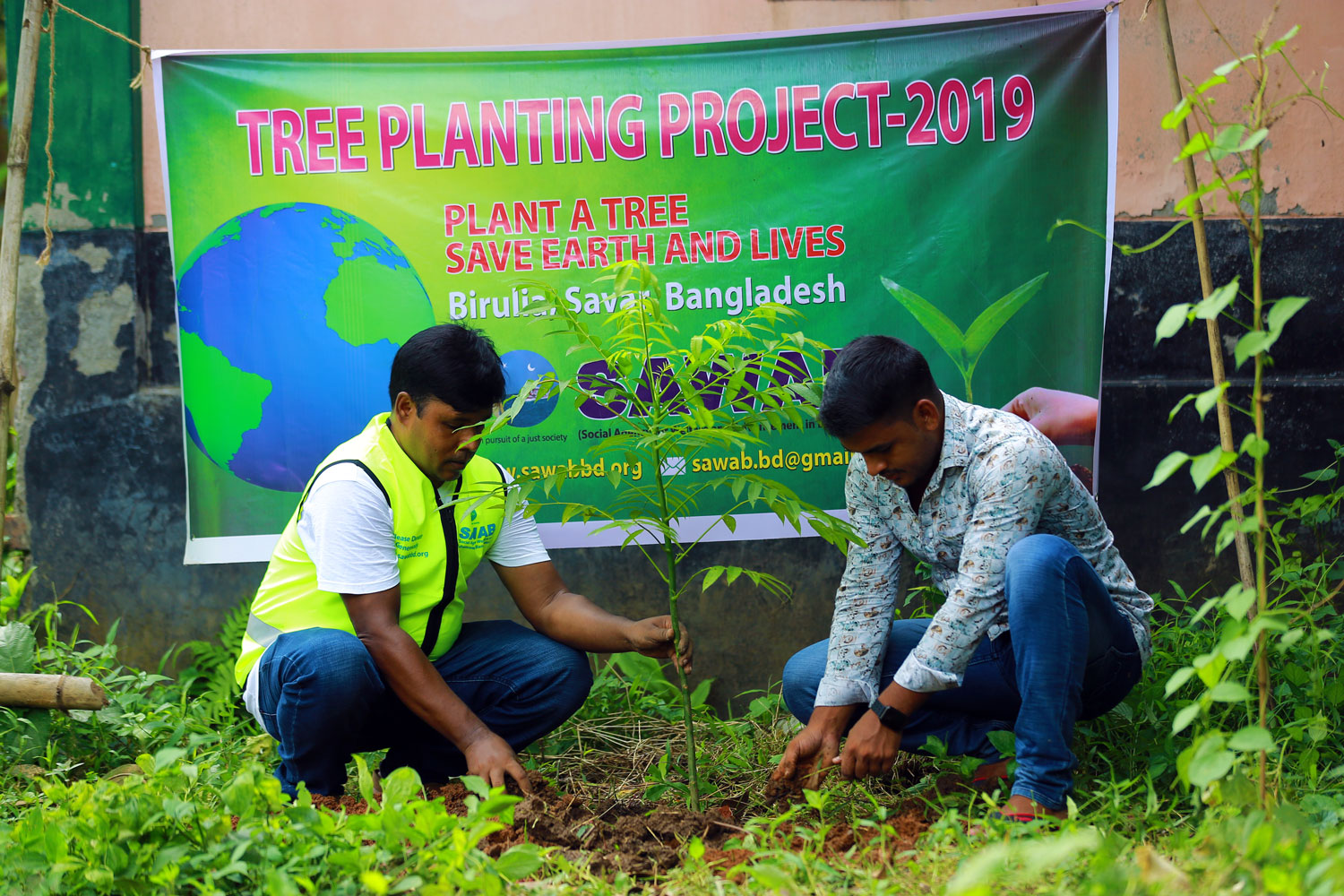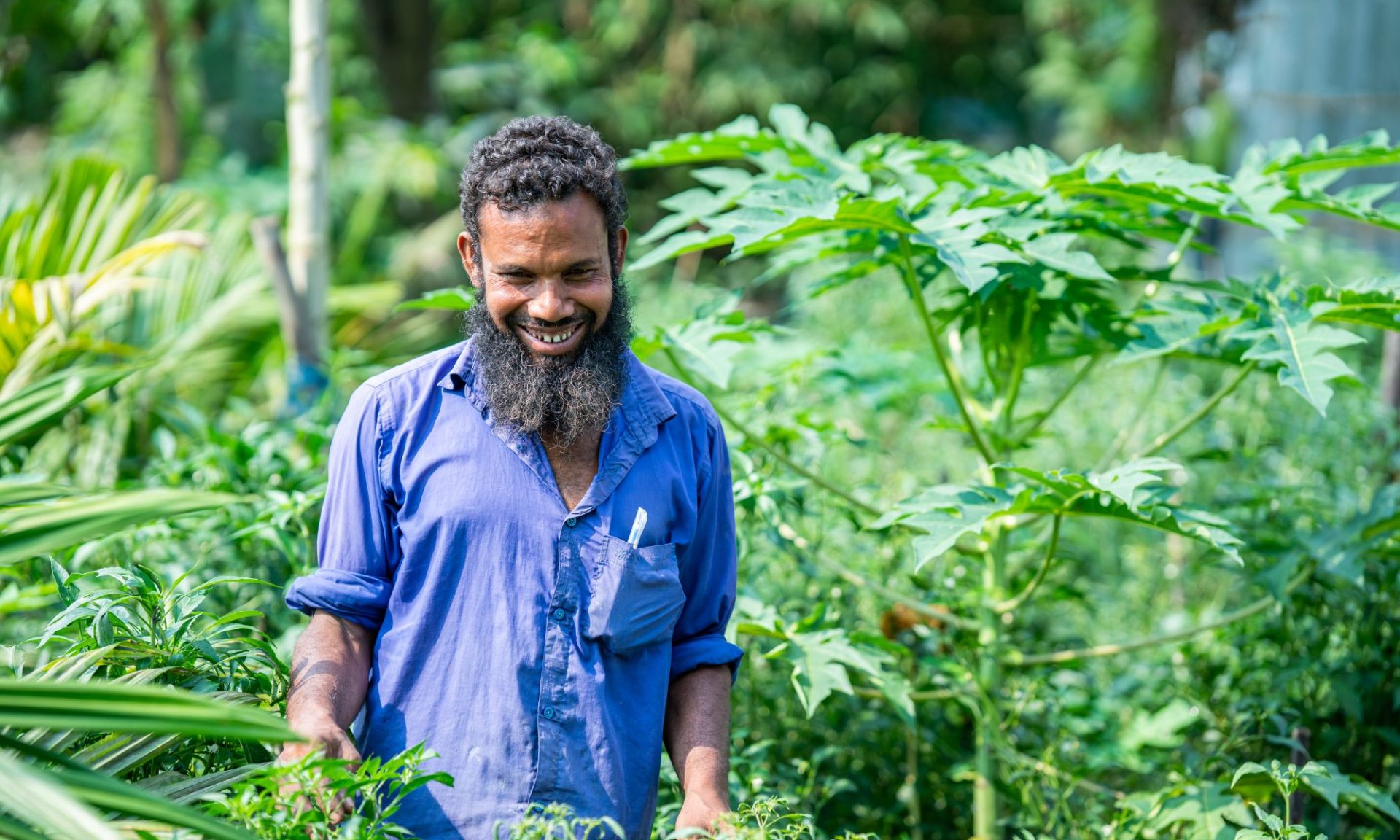Climate change is defined as any alteration in climate patterns over time, impacting human livelihoods and causing physical transformations to the Earth. Adaptation is the process of adjusting to these changing environmental conditions, directly influencing or modifying circumstances to ensure the survival, growth, and well-being of humans, animals, and other organisms, both living and non-living.
Mitigation involves interventions aimed at reducing the sources of greenhouse gases or enhancing their absorption, transforming adverse conditions into favorable ones. It encompasses measures and essential support to overcome obstacles and constraints, ultimately improving the overall environmental situation.


SAWAB, an organization committed to environmental sustainability, actively participates in climate change adaptation programs through various initiatives:
- Tree Plantation: SAWAB organizes numerous tree planting campaigns in flood and cyclone-affected areas of Bangladesh. By planting trees, they aim to mitigate the adverse effects of climate change by enhancing carbon sequestration, preventing soil erosion, and providing natural barriers against natural disasters like floods and cyclones.
- Awareness Development Campaigns: SAWAB conducts seminars, workshops, processions, and field visits as part of their awareness development campaign. These activities are designed to educate and engage younger generations about the importance of environmental conservation, sustainable practices, and the impacts of climate change. By raising awareness, SAWAB empowers individuals and communities to take proactive measures to adapt to and mitigate the effects of climate change.
Through these efforts, SAWAB contributes to building resilience against climate change in Bangladesh, particularly in vulnerable areas prone to natural disasters. By promoting tree plantation and raising awareness, SAWAB strives to create a more sustainable and resilient future for the country and its inhabitants.

